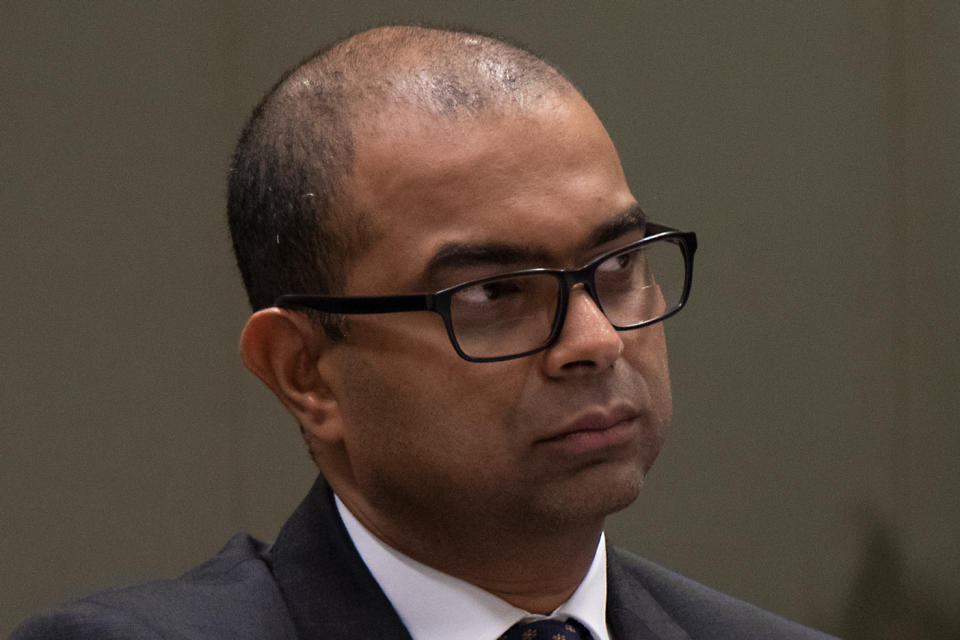Government to build charging infrastructure for electric vehicles: Janil

SINGAPORE — The government will ensure that there is enough charging infrastructure accessible to electric vehicle (EV) owners, said Senior Minister of State (SMS) for Transport Janil Puthucheary on Thursday (5 March). This is in support of the “ambitious undertaking” for all vehicles in Singapore to run on cleaner energy by 2040.
“This will not be easy, but is very important. If you are considering an EV over an ICE (internal combustion engine), vehicle you must be convinced that access to a charger will be as convenient as access to a petrol station,” said Janil, who was speaking during his ministry’s Committee of Supply (COS) debate.
Plans include prioritising the charging provision at carparks, starting with public carparks. As greater EV adoption will result in an increase in electricity demand, authorities will build new power generation capacity and reinforce the grid network. “We will also incorporate innovations such as smart charging and energy storage solutions that store energy from the grid during off-peak periods,” said Dr Puthucheary.
Finance Minister Heng Swee Keat announced the 2040 clean vehicles goal during his Budget speech last month. This means that after 2030, there should be no new purchases of ICE vehicles. There are currently almost 900,000 ICE vehicles in Singapore.
Paving the way for EVs
The SMS explained that EVs are at the core of this vision, as they are the most promising cleaner vehicle technology, being both energy efficient and increasingly cost effective. To realise this vision, the government will undertake four steps, starting with building a charging infrastructure.
Secondly, the authorities will incentivise demand for EVs. Dr Puthucheary noted that the upfront cost of EVs is about 78 per cent higher than equivalent ICE vehicles. “This is a large cost gap for prospective EV owners. In fact, EV sales only took up less than 0.1% of all new private car sales over the last 5 years.”
In this regard, the EV Early Adoption Incentive will see the upfront cost difference between an EV and an equivalent ICE vehicle narrowed by up to $20,000. “This cost gap will close further as we expect EVs to reach cost parity with ICE vehicles by the mid 2020s,” said the SMS, who added that he hopes car dealers will be encouraged to bring in more EV models.
Furthermore, taxi companies will also enjoy the incentive. Mass market EV taxi models will need to pay only the minimum Additional Registration Fee of $5,000. SMRT Taxis has already indicated their intention to trial more electric taxis in the near term, said Dr Puthucheary
And while existing EV owners are not eligible for the EV Early Adoption Incentive, they will benefit from the technical revision to the variable component of their road tax from 1 January 2021. These owners are exempt from the additional flat component of the new EV road tax that was introduced at this year’s Budget, for a period of three years.
Thirdly, the government will take the lead to green its fleets: all new public bus purchases from now on will be cleaner energy buses, including electric or hybrid buses. Since March 2019, 50 diesel hybrid buses have been on the roads, with 60 more fully electric buses to be progressively deployed this year.
Fourthly, regulations will be updated to keep pace with technology. For example, high-powered e-motorcycles will be allowed into Singapore from 1 April. CHAdeMO, a fast charging method for EVs, will also be approved as an optional EV public charging standard.
Stay in the know on-the-go: Join Yahoo Singapore's Telegram channel at http://t.me/YahooSingapore
Related stories:
Johor-Singapore rapid rail link project remains suspended till end-April: Khaw
More than 1,300km of cycling paths islandwide by 2030: Lam Pin Min
More than $60b over next decade to expand, renew rail network: Khaw
Priority cabins on NEL trains for vulnerable commuters by end-2020

 Yahoo Finance
Yahoo Finance 
